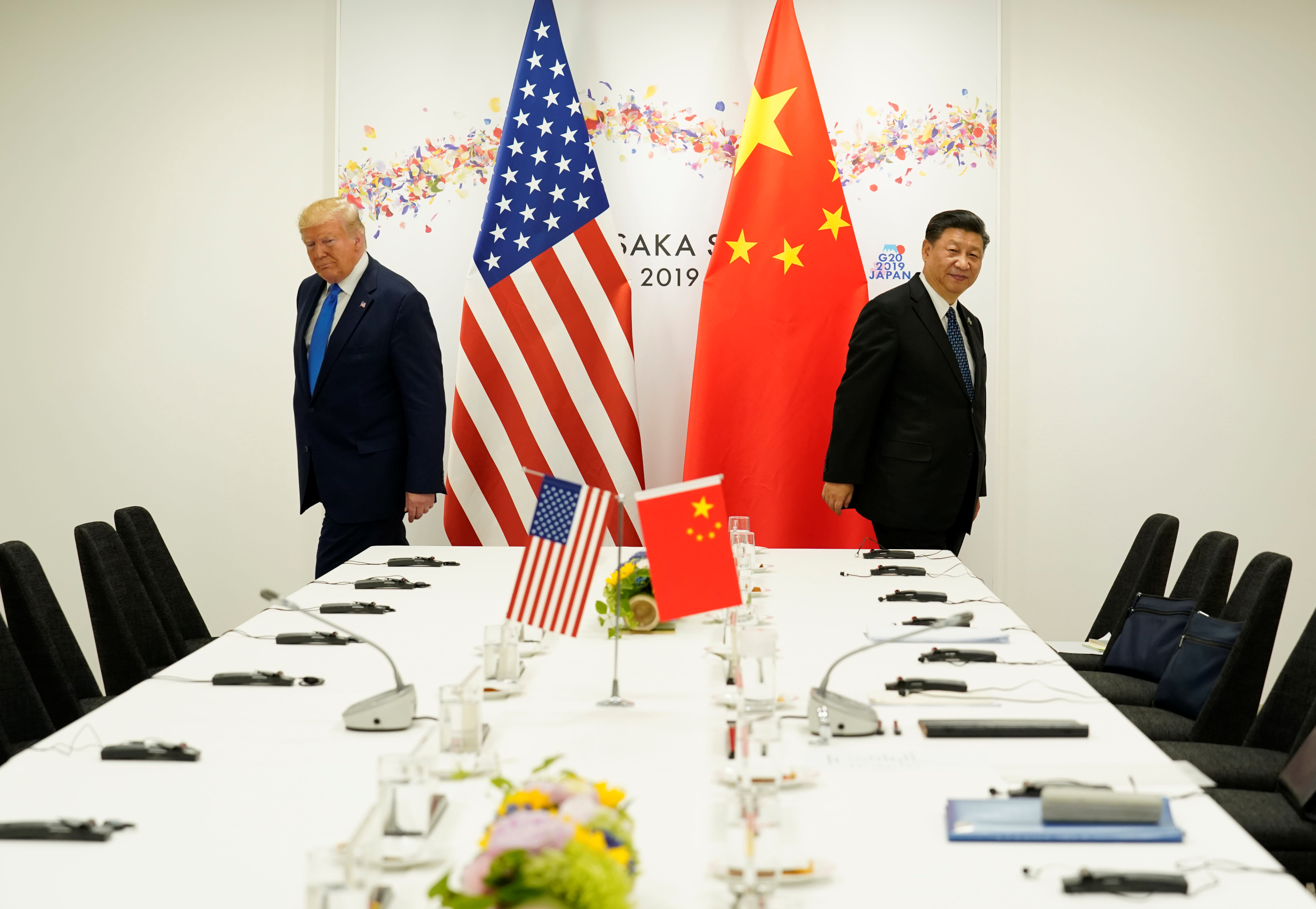U.S. President Donald Trump attends a bilateral meeting with China’s President Xi Jinping during the G-20 leaders summit in Osaka, Japan, June 29, 2019.
Kevin Lamarque | Reuters
President Donald Trump on Thursday signed an executive order barring Americans from investing in a a collection of Chinese companies that the White House believes support Beijing’s military.
The order prohibits American companies and individuals from owning shares outright — or through investment funds — in companies the administration deems to help in the advancement of the People’s Liberation Army.
The president stated in the order that “the People’s Republic of China (PRC) is increasingly exploiting United States capital to resource and to enable the development and modernization of its military, intelligence, and other security apparatuses.”
That investment “continues to allow the PRC to directly threaten the United States homeland and United States forces overseas, including by developing and deploying weapons of mass destruction, advanced conventional weapons, and malicious cyber-enabled actions against the United States and its people.”
The ban will take effect starting 9:30 a.m. on Jan. 11, 2021 and targets 31 companies identified by Department of Defense as “Communist Chinese military compan[ies].”
The list of firms includes large state-run aerospace and construction companies, as well technology and communications companies like Inspur Group, Huawei and China Telecommunications Corp.
The U.S. contends that these companies enable China’s military evolution through access to advanced technologies and expertise, and as a result, have in part led to Beijing’s aggressive global expansion.
A Biden transition official did not immediately respond to a request for comment on the newly signed order. A spokesman for BlackRock, the globe’s largest asset manager, said the firm is still reviewing the details of the order.
The order comes after months of warnings from Trump’s national security and economic teams that more drastic measures could be taken to curb Americans’ exposure to companies that either support China’s military ambitions or fail to meet U.S. disclosure and audit standards.
National Economic Council Director Larry Kudlow and national security advisor Robert O’Brien have led the administration’s calls for a crackdown on U.S. investment in Chinese companies.
“The President’s action serves to protect American investors from unintentionally providing capital that goes to enhancing the capabilities of the People’s Liberation Army and People’s Republic of China intelligence services,” O’Brien said in a statement on Thursday.
Beijing’s intelligence services “routinely target American citizens and businesses through cyber operations, and directly threaten the critical infrastructure, economy, and military of America and its allies and partners around the world,” he added.
In May, Trump and the U.S. Labor Department directed the board tasked with overseeing billions in federal retirement dollars to stop plans to invest in Chinese companies.
Labor Secretary Eugene Scalia warned the Federal Retirement Thrift Investment Board at the time that its current plan to invest federal savings would place “billions of dollars in retirement savings in risky companies that pose a threat to U.S. national security.”
The labor secretary, who cited bipartisan calls to restrict U.S. investment in Chinese stocks, wrote that the president is opposed to the board’s 2017 decision to allow its international fund to track an index that includes China-based stocks based on national security and investor risk concerns.
To invest in funds that include Chinese companies would “place millions of federal employees in the untenable position of choosing between forgoing any investment in international equities, or placing billions of dollars in retirement savings in risky companies that pose a threat to U.S. national security,” Scalia wrote.
— CNBC’s Christina Wilkie contributed to this report.

